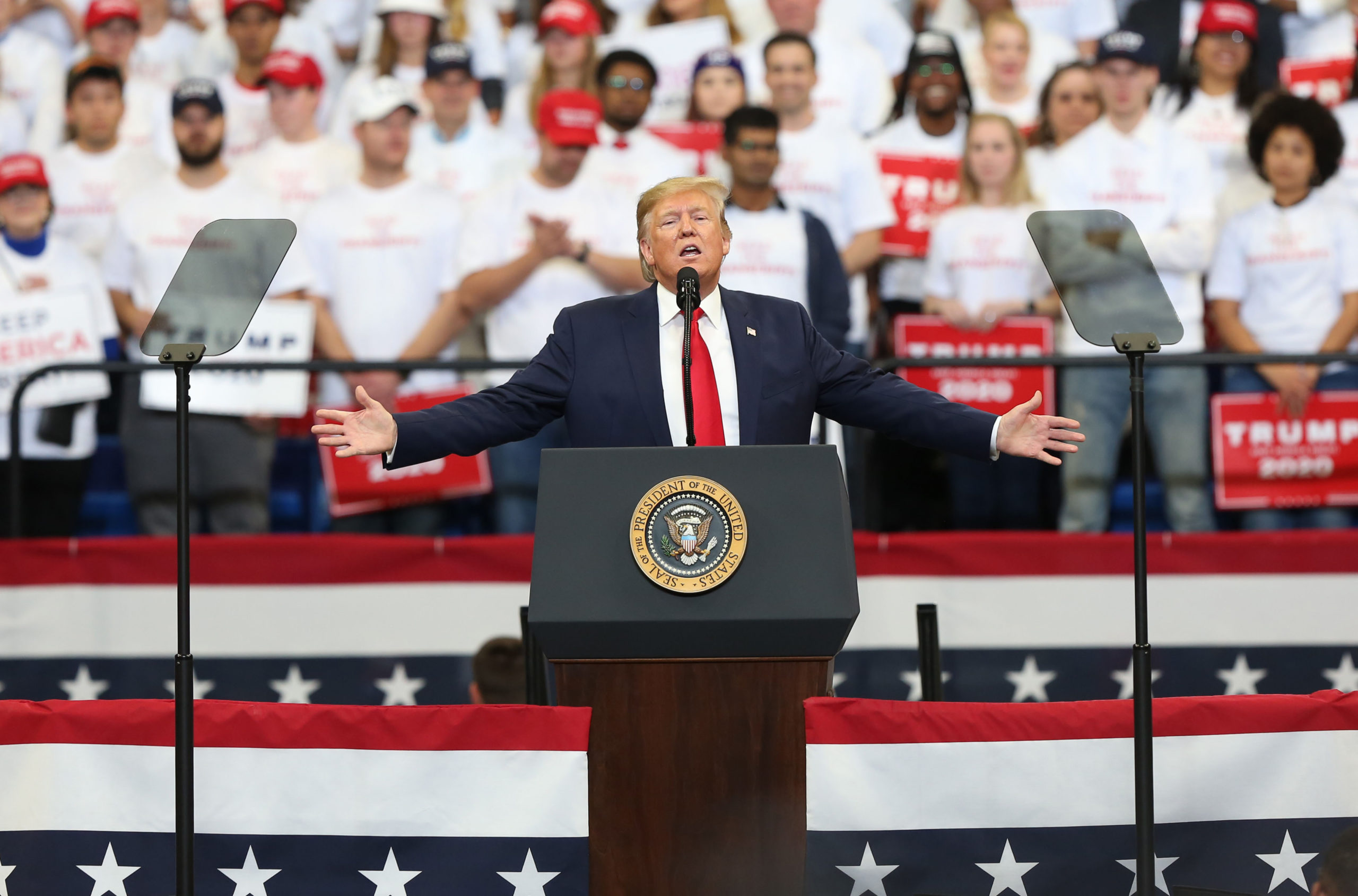


On Tuesday, the Colorado Supreme Court ruled President Donald Trump is ineligible for a second term and that Trump’s name will not appear on the GOP primary ballot.
The Colorado Supreme Court was split on the question, rendering a 4–3 decision. The majority opinion spans more than 200 pages and claims that Trump’s actions on January 6, 2021 amounted to an insurrection; therefore, he should be barred from seeking office on the basis of the 14th Amendment’s Section 3, a Civil War–era provision never before used to bar a presidential candidate from running for the presidency.
“We do not reach these conclusions lightly,” the majority opinion claims. “We are mindful of the magnitude and weight of the questions now before us. We are likewise mindful of our solemn duty to apply the law, without fear or favor, and without being swayed by public reaction to the decisions that the law mandates we reach.”
The Colorado Supreme Court reversed a decision rendered in November by District Judge Sarah B. Wallace. Though Wallace believes Trump “incited” what occurred on January 6, 2021, Wallace’s opinion seemed to embrace the Trump legal team’s argument that Section 3 does not apply to the president who takes an oath to “preserve, protect and defend” the Constitution rather than “support” it. Moreover, Section 3 lists several specific offices, but does not include the presidency.
Nevertheless, the Colorado Supreme Court claims, “President Trump asks us to hold that Section 3 disqualifies every oathbreaking insurrectionist except the most powerful one and that it bars oath-breakers from virtually every office, both state and federal, except the highest one in the land. Both results are inconsistent with the plain language and history of Section 3.”
Predicting the Supreme Court’s intervention, however, the Colorado Supreme Court decided to issue a stay on its opinion until January 4, 2024—the day before Colorado’s January 5 deadline to print primary ballots.
President Trump’s legal representation has vowed to appeal the decision to the Supreme Court. “This ruling, issued by the Colorado Supreme Court, attacks the very heart of this nation’s democracy,” Trump’s legal spokeswoman, Alina Habba, wrote in a statement Tuesday night. “It will not stand, and we trust that the Supreme Court will reverse this unconstitutional order.”
At Citizens for Renewing America, Jeffrey Bossert Clark’s analysis of Section 3 takes a similar tact as Wallace and could potentially preview the Supreme Court’s reasoning if it takes up the case and rules in favor of the former president. “It makes no sense for the Framers to have left out explicit reference to the President and Vice President, if they intended to include them via the side door of a general, back-end reference to ‘any office, civil or military, under the United States,’” writes Clark.
Clark continues:
The only proper conclusion of basic textual analysis is that the President and Vice President were seen as unique officials who would continue to be chosen in the fashion the Constitution provides. And that system is one in which the Electoral College alone is empowered to decide, consistent with state law for choosing electors sent to that College, who could hold the two highest governmental positions in the land. The Fourteenth Amendment’s Framers knew how to draft with precision. And they knew that if they had wanted to bar all potential insurrectionists/rebels from holding any federal office (broadly conceived), the text of Section 3 could have been pared down, and there would have been no need to call out Senators, Representatives, or electors specifically.
As Michael Anton once wrote for Compact, “They Can't Let Him Back In.” Certainly, lawfare offers the left an opportunity to ensure that Trump cannot assume the presidency, but the attorneys and activist groups bringing these suits know it is likely a long shot (given how the Supreme Court is currently constituted). Nevertheless, you miss 100 percent of the shots you don’t take.
Efforts like the one in Colorado are not meant to poison Trump’s image with the general public—everyone has more or less made up their mind about Trump as a person and a candidate. They also are not moves in a 4D chess game to actually bolster Trump’s candidacy in the primary because the left thinks he’s beatable in a general election (if that was the case, part of their lawfare would not be getting his name removed from the ballot).
The left’s real motivation is to tie Trump and the GOP up in court. The left does not believe voters determine elections—electoral machines do. The more time, money, and talent the left can get Trump and the GOP to devote to fending off lawfare, the less resources the right will have to fine-tune its machine and ensure the security of the upcoming election.
Have states changed their voting procedures back to the pre-coronavirus norm, or are elements of the Covid-19 election regime still in place? They certainly won’t be if the GOP doesn’t have the bandwidth to take on the challenge. Convicting Trump or banning him from the ballot box would be a bonus, but what fun is the headshot when death by a thousand cuts is another viable option?
